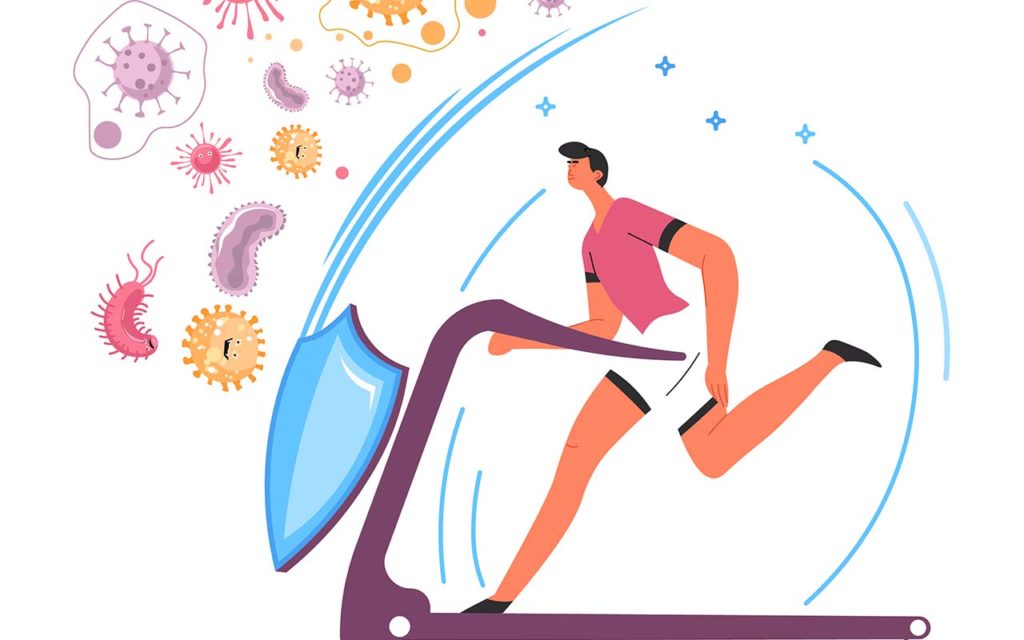The Immune System and Exercise

Before and after exercise a number of beneficial effects occur to support your immune system such as the release of pre- and anti-inflammatory cytokines.
Key Points: Suggestions on how to get started.
- Add a walk into your day, this can be a walking that lasts between 20 to 30 minutes or two walks a day split into 15 minutes.
- Regular physical activity offers the most benefit to your health and your immune system. Thirty minutes of moderate intensity activity on 5 days a week will offer the most benefits.
- If you are first starting out try low impact workouts such as walking, biking, yoga and swimming to get active.
- On two days a week perform resistance type exercises that target major muscle groups. These exercises can be done at home using your own body weight, exercise bands or light weights. You can include exercises such as squats, lunges and planks.
How does exercise effect the immune system?
Exercise also known as physical activity has both an acute and chronic effect upon the immune system. This response is dependent on a number of factors including how often exercise is performed, the intensity of exercise, the amount of time you spend exercising and the type of exercise conducted (1).
What happens after exercise?
After exercise there is an increased immune surveillance which has been proposed as one of the mechanisms responsible for supporting the immune response in relation to the benefits from physical activity (1). During exercise you release feel good hormones and neurotransmitters such as serotonin and dopamine and reduce the stress hormone called cortisol. This combination alleviates stress and helps to make you feel calm and happier.
High blood pressure effects immune system:
Blood pressure is recorded with 2 numbers, the systolic pressure and the diastolic pressure. The systolic pressure is the higher number and is the force at which your heart pumps blood around your body. The diastolic pressure is the lower number is the resistance to the blood flow in the blood vessels. lt is well known that regular moderate intensity exercise helps to support your immune system by improving its capacity to defend itself and delays age-related declines, this is due to an increase in blood being circulating around the body and providing anti-inflammatory effects (2).
The most scientifically effective dietary intervention you should be on to reduce your blood pressure is the DASH Diet.
References:
- De Silveira, M.P., Fagundes, K.DS., Bizuti, M.R., Starck, E., Rossi, R.C., and E Silva, D.T.DR. (2020). “Physical exercise as a tool to help the immune system against COVID-19: an integrative review od the current literature.” Clinical and Experimental Medicine. 21:15-28.
- Petersen, A.M.W., and Pedersen, B.K. (2005). “The anti-inflammatory effect of exercise.” Journal of Applied Physiology. 98(4):1154-1162.
- Nieman, D.C., and Wentz, L.M. (2019). “The compelling link between physical activity and the body’s defense system.” Journal of Sport and Health Science. 8(3):201-2017.